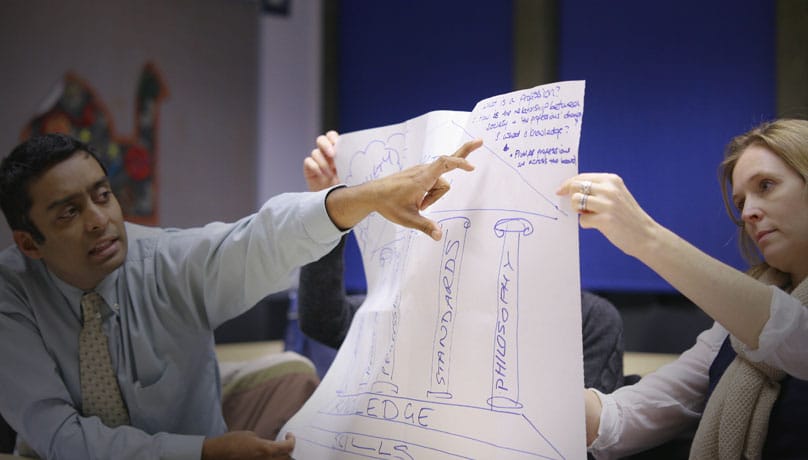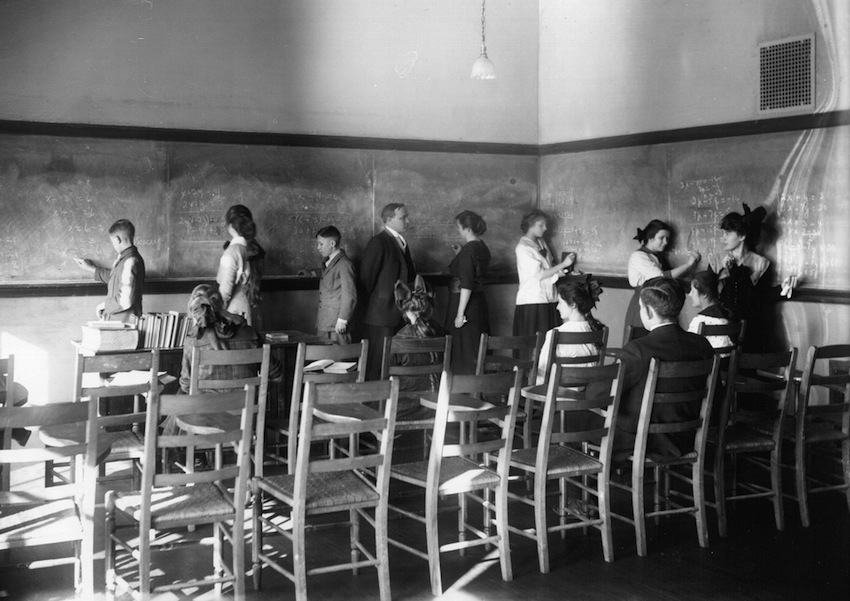How to Run an Unconference
Event planners are moving further and further away from the traditional top-down lecture sessions and looking to innovate with their events. By allowing attendees to set the agenda and host their own sessions, Unconferences are a more relevant, engaging, and interactive event format.
Despite a lack of pre-planning on the face of things, Unconferences still actually require a number of important components to be in place to be a genuine success. This guide takes you through everything you need to know about running an Unconference.
What is an Unconference?
Finding popularity in the Tech sector in the mid-nineties, Unconferences represented a move away from formal conferences with attendees given the freedom to create the event they wanted. There is no pre-planned agenda – instead participants convene sessions on whatever topic they like on the morning of the Unconference, claiming a time slot and location.
Why Unconferences Make Sense
Unconferences make for great events for a number of reasons. Ultimately, they allow attendees to cover a wider range of less common topics and probe difficult, unusual and rapidly changing areas of interest. Unconferences are particularly suited for industries where change is rapid and those where creative thinking is essential. If you work within a sector that is struggling with event attendance and engagement with your events then Unconferences can really shake things up and get people interested again. With larger more traditional conferences, there is pressure to focus on more general and crowd-pulling topics whereas Unconferences allow attendees to go niche and explore what interests them.
Unconferences are also good for the following:
- Peer-to-peer learning
- Collaboration
- Creativity
- Increased engagement as attendees provide the themes
The Format of an Unconference
The basic format of an Unconference is as follows:
- Welcome – cover the basics of how the day will work as well as any venue house-keeping details
- Scheduling – setting the agenda for the day
- Attendee-lead Sessions
- Lunch
- Attendee-lead Sessions
- Afternoon break
- Attendee-lead Sessions
- Drinks
Before the Unconference
Finding the Right Unconference Venue
There are a few additional requirements to consider when looking for a venue for your Unconference, they include the following:
- Several fully-equipped rooms – including a/v and plug sockets
- ‘Blank canvas’ event spaces – ability to quickly and easily change room layouts depending on the requirements of the session host
- Central space for the scheduling
- Breakout spaces – continuing the conversation and networking are really key to a successful Unconference
- Reliable Wi-Fi
- Excellent transport links
Getting the Right Attendees
Many Unconferences are organised by and based around active communities. You are more than likely already at the centre of a community, but if this is not the case, you just need to make sure you connect with all active communities in your field early on. It is important to make use of all available communication channels and share widely with your networks to promote the event.
Education – How to Prepare Attendees
Most conferences are very structured with each presentation, talk and round-table allotted a time slot and location well in advance. The talks will be meticulously planned and the format of the day largely set in stone. Unconferences are not like this at all and not everyone will be familiar with the format or practicalities of an Unconference so it’s important that you give them prior warning and plenty of informative tips.
Make them aware of the following points to help them prepare:
- It’s best that each session topic has an angle – one that encourages debate and discussion. Make this clear and also share some tips on running a session prior to the event.
- Reassure session hosts to not take it personally if no-one attends their session
- It’s important that session hosts stick to the timetable and don’t let their sessions over run – remind them to be aware of those waiting for the next session
- The timetable is likely to change during the day so remind people to keep checking back
On the Day of the Unconference
Setting Up
Rooms
On the morning of your Unconference before any attendees arrive, you will want to get the spaces and rooms ready for the event.
When setting up rooms for an Unconference, make sure they are clearly labelled and findable on a map so that attendees can find them easily. Check that there are sufficient seats and that the room can easily be rearranged to suit the needs of the session. Ideally you will have ‘blank canvas’ spaces that give complete freedom for room layout. You will want to make sure that all required equipment is available in each room and working – this includes whiteboards, A/V equipment, marker pens and paper.
Scheduling Space
The most important think to prepare is the scheduling space. You will need to attach large sheets of paper to a convenient wall with schedule slots marked out and ready to be filled in. You want to make sure there are enough working pens. Some people like to use Post-It notes so that they are easily rearranged. There is always the desire to make the process in some way digital and avoid the use of paper and pens, however, this gets in the way of scheduling. As Darren Barefoot points out in an article for Capulet – “Don’t try to maintain a parallel electronic version of the schedule.”
The Unconference
Welcome Session
The welcome session is all about making people feel comfortable and covering off some practical details. Once the ice is broken, recap the basics about how the Unconference will work along with the start, finish and break times. It’s a good opportunity to remind people of the social media details including the relevant hashtags and encourage them to engage as much as possible. You can now create the schedule together.
Scheduling
The agenda is planned on large sheets of paper (taped to the wall) each featuring empty session slots. Attendees can put a session up on the agenda on whatever topic they like – all they need to do is write down a session title/topic, the location and their name in a free slot. Once the slots are all filled, the attendees may want to consider if there are any topics that can be merged together in a collaborative joint session. It’s also important to make clear that any session can be amended throughout the day as and when required.
Tip – Make sure the paper is thick enough so that ink doesn’t bleed onto the wall.
The Sessions
Each session is ran by an attendee(s) and therefore can take a whole range of different formats. These can range from a formal, well-planned session to the very informal where someone discusses an idea that just occurred to them or debates a fresh topic. Preparation is not a requirement of running a session but session hosts may want to consider a format that could help them achieve what they want.
Session Formats
Sessions can take any format, but more often than not they fall into the following categories:
- Teaching / Training – peer-to-peer learning on a practical or theoretical basis
- Discussion / Debate
- Talk/Lecture – outline an idea or piece of research
- Show and Tell – project/demo
- Answering a Question or Resolving a Problem
- Thrashing out a new idea
Tip – For the session hosts, it can work well to provide some context, outlining the key issues and concepts in an introductory segment before opening it up to the floor for discussion.
How You Can Help
You, your colleagues and any volunteers should attend sessions and generally be around to help out and answer any questions. You can make sure sessions run to schedule and even ask questions and encourage debate if things start to dry-up.
Round-Up
At the end of the day, it is worth gathering people together to say your thank yous and encourage people to continue their discussions over a drink or two. Having a nearby pub venue in mind can work really well.
Running an Unconference Session
Leading a session comes with its own responsibilities and pressures. Although the atmosphere will be informal and relaxed, you want to make sure people get as much as possible out of your session and remain engaged. There are some things you should endeavour to do and some things you should definitely avoid.
Key Considerations for Session Hosts
- Think about what you want to cover in your session and how you want to cover it. Don’t over-prepare but having some idea is always beneficial.
- Pitch your content to the crowd – it’s always worth providing a basic overview before getting into more complicated aspects of the topic. Try and gauge your groups understanding – a simple show of hands can be beneficial.
- Encourage engagement whenever you can– debate and interaction are essential to the Unconference experience
- Don’t be afraid to ask for help – get people to explain something, especially if you know they specialise in that particular area
- The nature of Unconferences means that some sessions may only have a couple of attendees (sometimes none) – don’t let this put you off.
- Feel free to end a session early if it comes to a natural conclusion. Similarly if the debate is flowing and the session is about to run over try and find an alternative space to carry it on.
Things to Avoid
- Allow people to disagree with you – constructive criticism and free debate are essential
- Avoid rants – never a good idea
- Avoid product demos
- Avoid excessive brand or self-promotion
Running an Unconference at 20 Bedford Way
With a number of breakout spaces as well as our flagship Logan Hall, 20 Bedford Way is a perfect venue for an Unconference. Our ‘blank canvas’ rooms can be adapted to a variety of layouts to help facilitate engaging sessions. In particular the Committee Rooms are ideal for an Unconference when used along with the adjacent Nunn Hall. For more information call our team today on 020 7612 6143 or email us at venuehire@ioe.ac.uk.

UnConference Session at 20 Bedford Way
Resources / Further Reading
unConferencing – how to prepare to attend an unConference by Kaliya Hamlin from Unconference.net
How to Facilitate a Barcamp by Mike Riversdale
How to Run a Great Barcamp or Unconference by Darren Barefoot
Header Image of Teaching Group 1914 Miami University Libraries via Flickr




